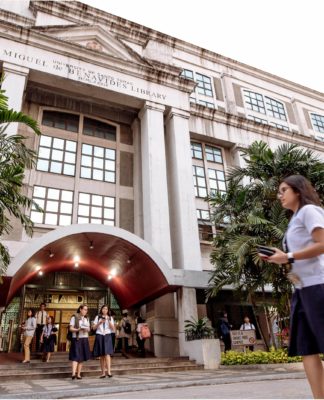THE FATE of the Human Security Act of 2007 rests in the hands of the Supreme Court amid apprehensions on the anti-terrorism law from Church leaders and human rights groups.
The government has started implementing the law despite appeals from the Catholic Bishops’ Conference of the Philippines (CBCP) and other groups for a thorough review.
“Many voices are apprehensive about the law on the basis of constitutionality and provisions that may legalize objectionable methods of quelling opposition,” the CBCP said in a statement last July 8.
The Supreme Court has asked the government to reply to petitions filed by various groups seeking to strike down the law, but did not grant a request for a temporary restraining order.
Church leaders and human rights groups are pointing to the “unwieldy” definition of terrorism under the law as well as the absence of standards as to what constitutes “widespread” and “extraordinary fear” resulting from terrorist acts.
Section 3 of the anti-terror law defines terrorism as “commission of piracy, rebellion, coup d’ etat, murder, kidnapping and serious illegal detention, crimes involving arson, the use of toxic substances, atomic bombs, high jacking, highway robbery, and unlawful possession of firearms, thereby creating a condition of widespread and extraordinary fear and panic among the populace, in order to coerce the government to give in to an unlawful demand.”
Catholic bishops also said the anti-terrorism law, which sends violators to up to 40 years in prison, can also be used by the Arroyo administration to quell popular uprisings.
President Macapagal-Arroyo has said the Human Security Act will give more teeth to the government’s campaign against crime and terrorism because it makes terrorism and financial support for terrorists criminal acts.
Executive Secretary Eduardo Ermita, chairman of Anti-Terror Law Council, the body tasked to implement the law, had noted that 59 of the anti-terror law’s 62 sections were about protecting human rights.
One of those provisions is Section 50 which entitles a person acquitted of terrorism charges a hefty P 500,000 payment for damages for every day of detention.
Political Science professor Dennis Coronacion, however, said the hefty damages could be prone to abuse, along with other provisions.
“Because of the heavy fines, authorities would be cautious in arresting people suspected of terrorism,” Coronacion said.
Others provisions of the Human Security Act being questioned for “vagueness” and “unconstitutionality” include those on conspiracy to commit terrorism (Section 4), allowing government officials to wiretap suspected terrorists provided they have secured permission from the Court of Appeals (Section 7), organizing a terrorist organization (Section 17), detention without judicial warrant of arrest (Section 18), travel restrictions on a suspected terrorist whether evidence of guilt is strong or not (Section 26), examining bank accounts upon a written order of the Court of Appeals (Section 28), and seizure of property of any person suspected or charged of terrorism (Section 39).
The CBCP said: “The law violates the Bill of Rights enshrined in the Constitution because it deprives people of their life, liberty, and property.”
Nearly 1,000 cases of extrajudicial killings and 200 cases of forced disappearances have been recorded by human rights groups since Macapagal-Arroyo took over in 2001. S. K. Digal and Kristine Jane R. Liu


















